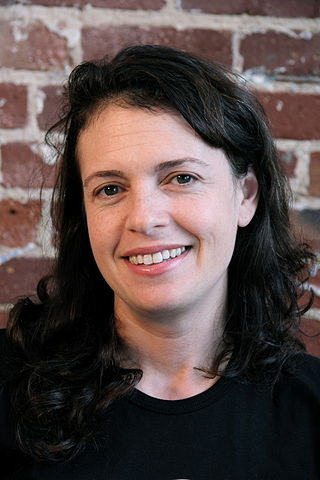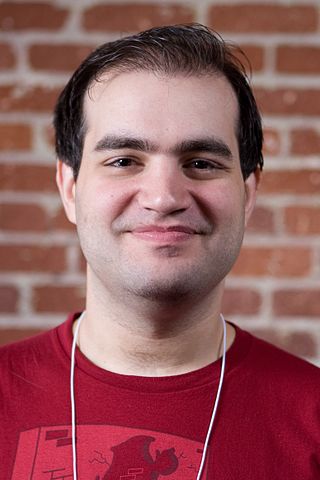In the field of computer security, independent researchers often discover flaws in software that can be abused to cause unintended behaviour; these flaws are called vulnerabilities. The process by which the analysis of these vulnerabilities is shared with third parties is the subject of much debate, and is referred to as the researcher's disclosure policy. Full disclosure is the practice of publishing analysis of software vulnerabilities as early as possible, making the data accessible to everyone without restriction. The primary purpose of widely disseminating information about vulnerabilities is so that potential victims are as knowledgeable as those who attack them.
DEF CON is a hacker convention held annually in Las Vegas, Nevada. The first DEF CON took place in June 1993 and today many attendees at DEF CON include computer security professionals, journalists, lawyers, federal government employees, security researchers, students, and hackers with a general interest in software, computer architecture, hardware modification, conference badges, and anything else that can be "hacked". The event consists of several tracks of speakers about computer and hacking-related subjects, as well as cyber-security challenges and competitions. Contests held during the event are extremely varied and can range from creating the longest Wi-Fi connection to finding the most effective way to cool a beer in the Nevada heat.
The Internetworking Operating System (IOS) is a family of proprietary network operating systems used on several router and network switch models manufactured by Cisco Systems. The system is a package of routing, switching, internetworking, and telecommunications functions integrated into a multitasking operating system. Although the IOS code base includes a cooperative multitasking kernel, most IOS features have been ported to other kernels, such as Linux and QNX, for use in Cisco products.
A grey hat is a computer hacker or computer security expert who may sometimes violate laws or typical ethical standards, but usually does not have the malicious intent typical of a black hat hacker.
Black Hat Briefings is a computer security conference that provides security consulting, training, and briefings to hackers, corporations, and government agencies around the world. Black Hat brings together a variety of people interested in information security ranging from non-technical individuals, executives, hackers, and security professionals. The conference takes place regularly in Las Vegas, Barcelona, London and Riyadh but has also been hosted in Amsterdam, Tokyo, and Washington, D.C. in the past.
Watering hole is a computer attack strategy in which an attacker guesses or observes which websites an organization often uses and infects one or more of them with malware. Eventually, some member of the targeted group will become infected. Hacks looking for specific information may only attack users coming from a specific IP address. This also makes the hacks harder to detect and research. The name is derived from predators in the natural world, who wait for an opportunity to attack their prey near watering holes.

Jennifer Stisa Granick is an American attorney and educator. Senator Ron Wyden has called Granick an "NBA all-star of surveillance law." She is well known for her work with intellectual property law, free speech, privacy law, and other things relating to computer security, and has represented several high-profile hackers.

The CERT Coordination Center (CERT/CC) is the coordination center of the computer emergency response team (CERT) for the Software Engineering Institute (SEI), a non-profit United States federally funded research and development center. The CERT/CC researches software bugs that impact software and internet security, publishes research and information on its findings, and works with businesses and the government to improve the security of software and the internet as a whole.

Jeff Moss, also known as Dark Tangent, is an American hacker, computer and internet security expert who founded the Black Hat and DEF CON computer security conferences.

Daniel Kaminsky was an American computer security researcher. He was a co-founder and chief scientist of Human Security, a computer security company. He previously worked for Cisco, Avaya, and IOActive, where he was the director of penetration testing. The New York Times labeled Kaminsky an "Internet security savior" and "a digital Paul Revere".
Massachusetts Bay Transportation Authority v. Anderson, et al., Civil Action No. 08-11364, was a challenge brought by the Massachusetts Bay Transportation Authority (MBTA) to prevent three Massachusetts Institute of Technology (MIT) students from publicly presenting a security vulnerability they discovered in the MBTA's CharlieCard automated fare collection system. The case concerns the extent to which the disclosure of a computer security flaw is a form of free speech protected by the First Amendment to the United States Constitution.

Goatse Security (GoatSec) was a loose-knit, nine-person grey hat hacker group that specialized in uncovering security flaws. It was a division of the anti-blogging Internet trolling organization known as the Gay Nigger Association of America (GNAA). The group derives its name from the Goatse.cx shock site, and it chose "Gaping Holes Exposed" as its slogan. The website has been abandoned without an update since May 2014.

Mikko Hermanni Hyppönen is a Finnish computer security expert, speaker and author. He works as the Chief Research Officer at WithSecure and as the Principal Research Advisor at F-Secure.

HackMiami is a formal organization of information security professionals who host the annual international hacker conference that takes place in Miami Beach, FL known as the 'HackMiami Conference.'
A bug bounty program is a deal offered by many websites, organizations, and software developers by which individuals can receive recognition and compensation for reporting bugs, especially those pertaining to security exploits and vulnerabilities.
HackerOne Inc. is a company specializing in cybersecurity, specifically attack resistance management, which blends the security expertise of ethical hackers with asset discovery, continuous assessment, and process enhancement to find and close gaps in the digital attack surface. It was one of the first companies to embrace and utilize crowd-sourced security and cybersecurity researchers as linchpins of its business model; pioneering bug bounty and coordinated vulnerability disclosure. As of December 2022, HackerOne's network had paid over $230 million in bounties. HackerOne's customers include The U.S. Department of Defense, General Motors, GitHub, Goldman Sachs, Google, Hyatt, Lufthansa, Microsoft, MINDEF Singapore, Nintendo, PayPal, Slack, Twitter, and Yahoo.
Security BSides is a series of loosely affiliated information security conferences. It was co-founded by Mike Dahn, Jack Daniel, and Chris Nickerson in 2009. Due to an overwhelming number of presentation submissions to Black Hat USA in 2009, the rejected presentations were presented to a smaller group of individuals. The event was named after the "B-side" of a vinyl record.

Ang Cui is an American cybersecurity researcher and entrepreneur. He is the founder and CEO of Red Balloon Security in New York City, a cybersecurity firm that develops new technologies to defend embedded systems against exploitation.
Kr00k is a security vulnerability that allows some WPA2 encrypted WiFi traffic to be decrypted. The vulnerability was originally discovered by security company ESET in 2019 and assigned CVE-2019-15126 on August 17th, 2019. ESET estimates that this vulnerability affects over a billion devices.
Cisco Talos, or Cisco Talos Intelligence Group, is a cybersecurity technology and information security company based in Fulton, Maryland. It is a part of Cisco Systems Inc. Talos' threat intelligence powers Cisco Secure products and services, including malware detection and prevention systems. Talos provides Cisco customers and internet users with customizable defensive technologies and techniques through several of their own open-source products, including the Snort intrusion prevention system and ClamAV anti-virus engine.







